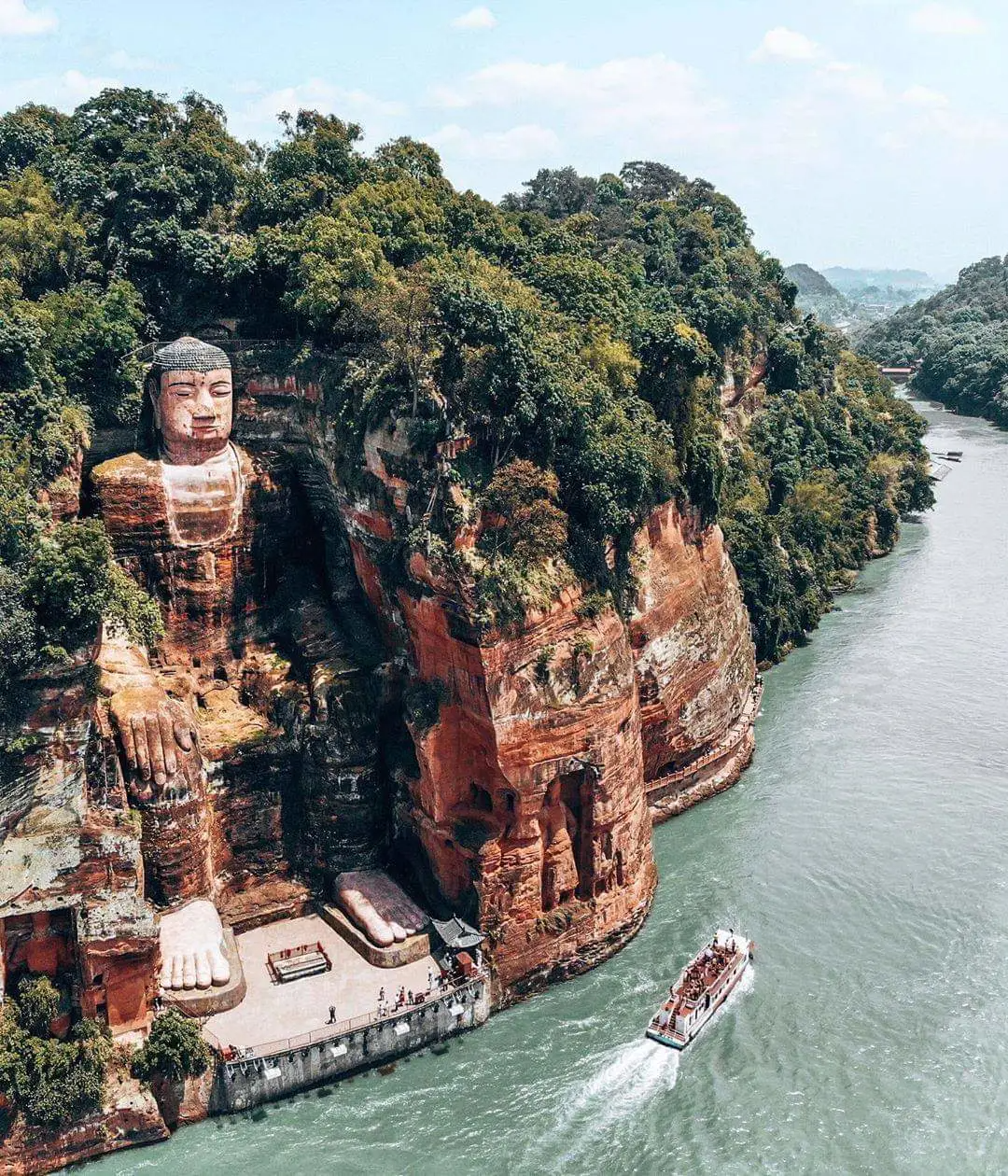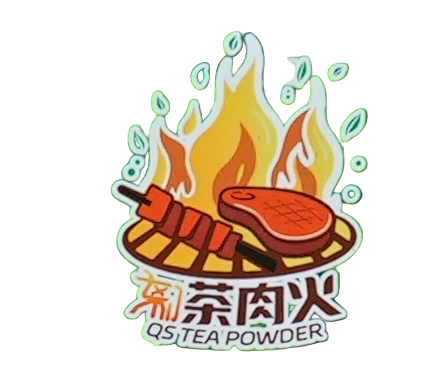Leshan and Emei Mountain, located in Sichuan Province, are important Buddhist cultural sites and UNESCO World Heritage locations in China. The Leshan Giant Buddha, carved at the meeting point of the Minjiang, Qingshui, and Dadu Rivers, stands as a majestic symbol of Buddhist compassion, drawing countless visitors. Emei Mountain, known for its towering beauty and rich Buddhist heritage, is the sacred site of Samantabhadra Bodhisattva. Every year, it attracts many pilgrims and hiking enthusiasts.
In this serene landscape, Emei Xueya tea is renowned. Grown in high-altitude, misty tea gardens on Mount Emei, it has a delicate flavor with a lasting sweetness. Known as the “Buddha tea,” Emei Xueya is not just a tea, but a reflection of Buddhist practice and the idea of purifying the heart. Drinking a cup of Emei Xueya tea offers a unique experience of both tea aroma and Zen, bringing a sense of inner peace and awakening.
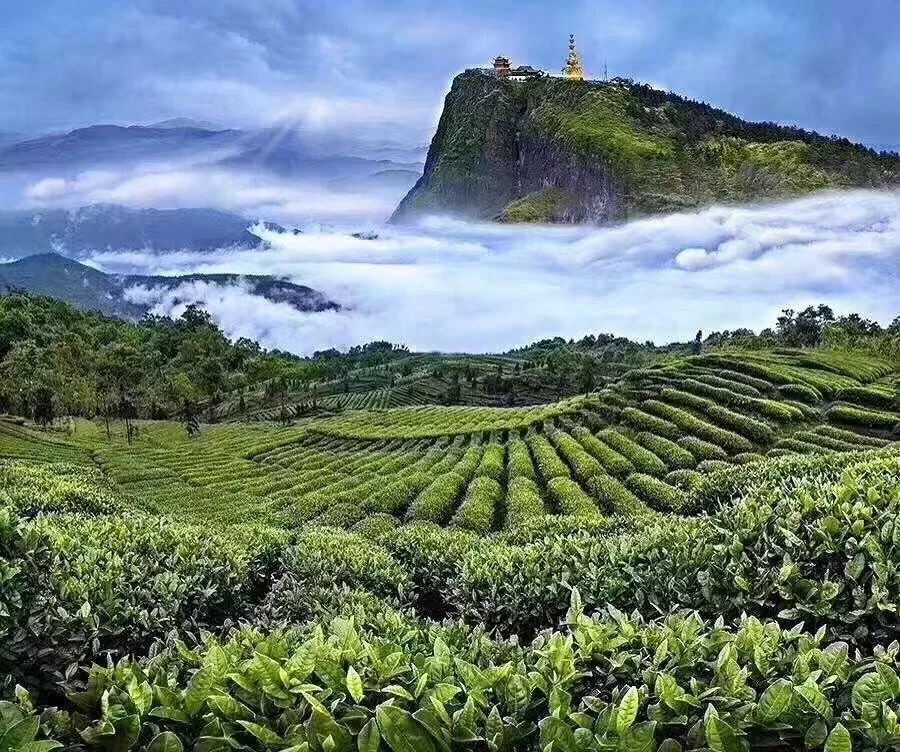
I. The Legend of Emei Xueya as Buddha Tea
Long ago, a high monk on Mount Emei had a dream of Guanyin, the Goddess of Mercy, during his meditation. In the dream, Guanyin held a pure vase, gently pouring sweet nectar, which fell like dew upon the tea trees on the mountain. The next morning, the monk followed the dream's guidance and planted tea trees in the mountain gardens. The tea buds on Mount Emei grew crystal-clear like snow, and thus the tea was named "Emei Xueya" (Emei Snow Buds). This legend symbolizes the sacred connection between Emei Mountain tea and Buddhism, imbuing Emei Xueya with deep religious significance.
Another popular story describes the miraculous sight of tea buds sprouting in the cold winter snow on Mount Emei. Despite the snow covering the ground, the tea trees remained vibrant and fresh, symbolizing the purity and enlightenment of Buddhist teachings. It suggests that even in adversity, one can maintain a peaceful heart and seek the truth within. The "snow buds" represent resilience, while also embodying the tea drinker's pursuit of a pure heart and spiritual awakening.
Since ancient times, Mount Emei has been a sacred site for Buddhist monks. Tea and Zen have become closely intertwined. Emei Xueya, known as a tea for clearing the mind, often accompanies the monks' meditation practices. A sip of this tea is subtle and refreshing, calming distractions and aiding in their spiritual journey. For practitioners, tea becomes a tool to assist in their path, awakening the heart and symbolizing the spirit of "Tea and Zen as One."
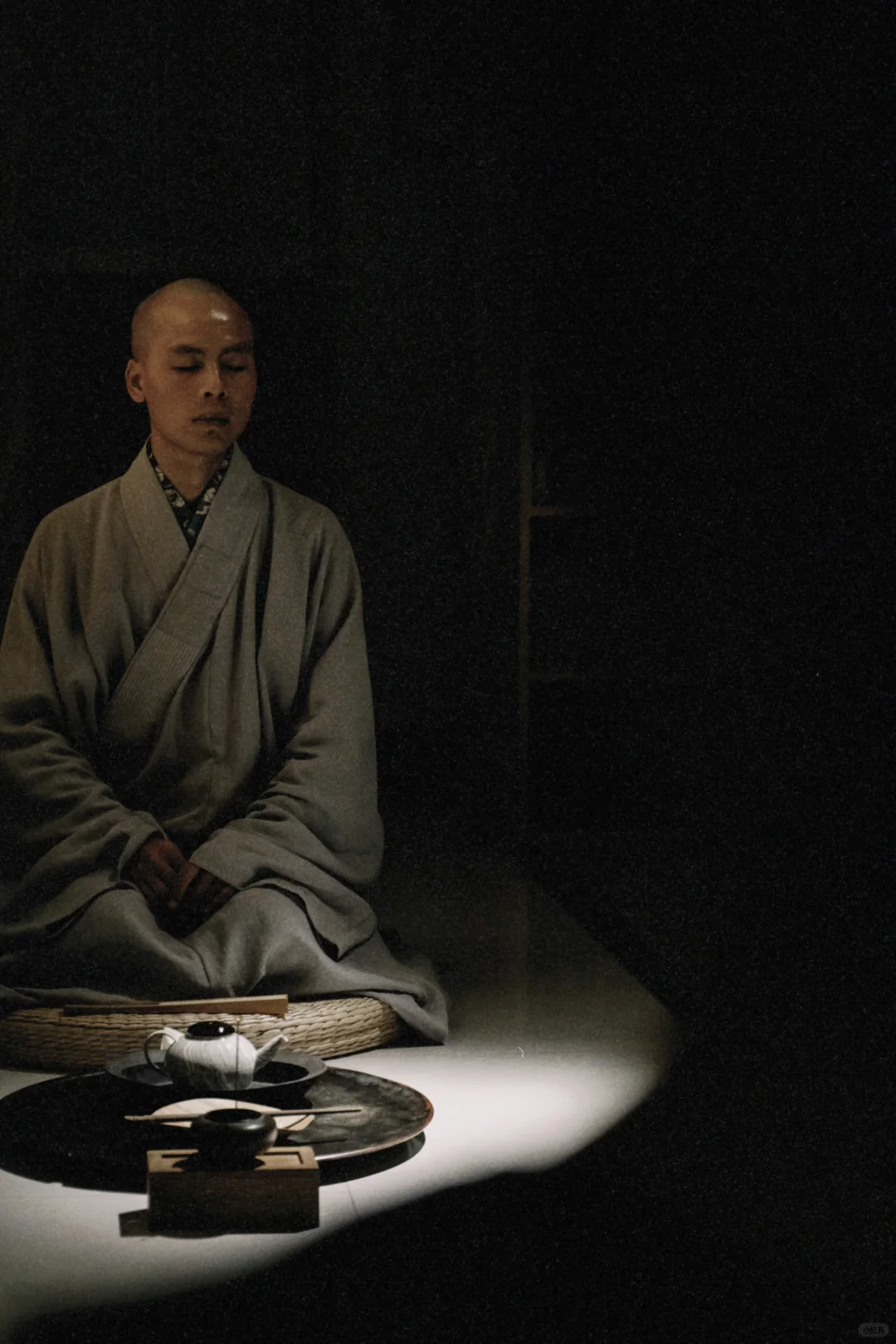
These legends and stories infuse Emei Xueya with profound cultural meaning, making it not only a renowned tea but also a symbol of spiritual purification and Buddhist wisdom.
II. The Tea Culture of Emei Xueya
-
Tea Gardens in the Mountain Clouds
Emei Xueya is grown in the high-altitude areas of Mount Emei, where the mist and clouds linger year-round, creating an ideal environment for tea trees. The climate is humid with a large temperature difference between day and night, and the soil is rich in organic matter. These natural advantages contribute to the unique fresh, mellow, and delicate fragrance of Emei Xueya. The tea leaves absorb the essence of heaven and earth, capturing the pure taste of nature in each bud.
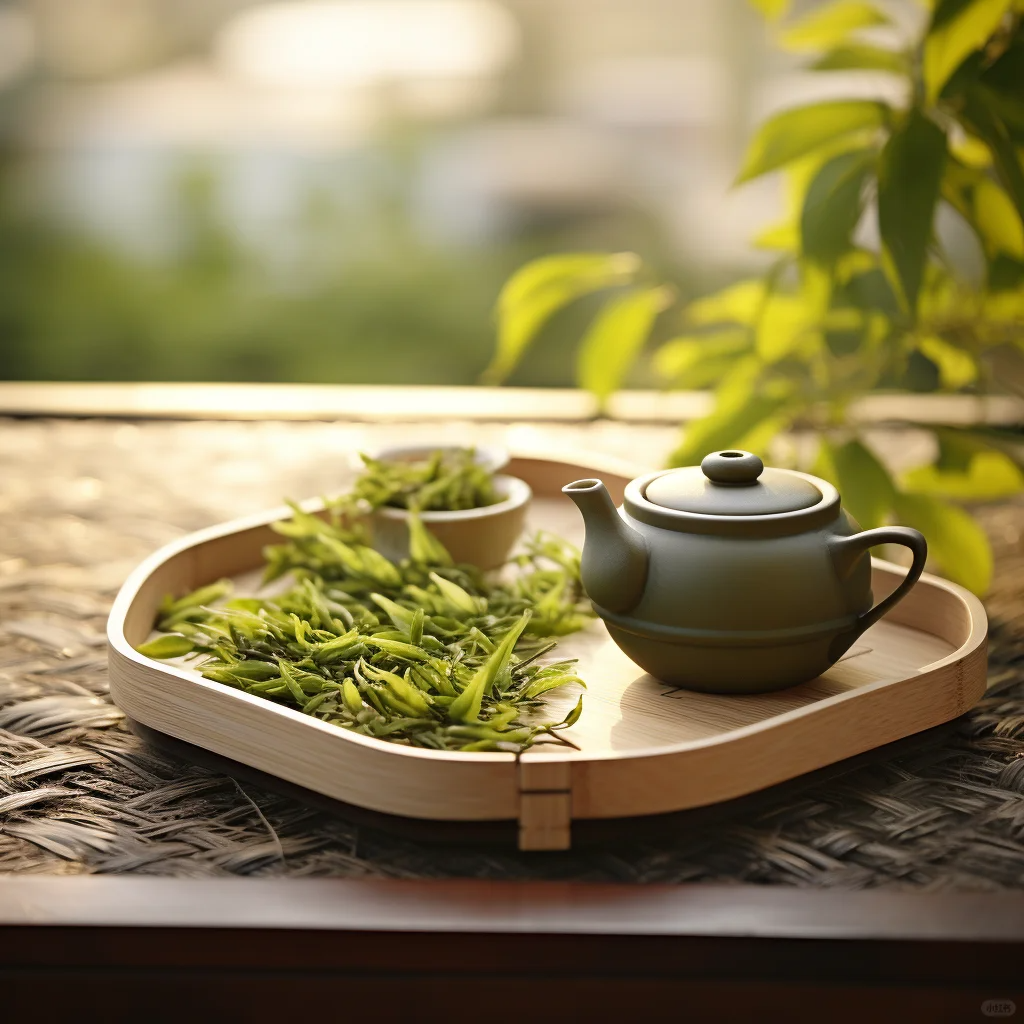
-
Tea Ceremony in the Temples of Mount Emei
In the temples of Mount Emei, the tea ceremony is not only a gesture of hospitality but also a spiritual practice. Monks focus on a calm and peaceful state of mind while brewing the tea, following the principles of "pure water, clean utensils, and a calm heart." Every step of the tea preparation, from boiling the water to serving the tea, carries a sense of Zen, expressing respect and gratitude for nature and life. This tea tradition, passed down for centuries, has become an inseparable cultural symbol of Emei Xueya.
-
The Flavor of Buddha Tea and Spiritual Purification
"Tea and Zen as One" is the essence of Emei Xueya’s tea culture. Drinking Emei Xueya is like meditating and awakening the mind. As you sip the tea, its gentle aroma unfolds, and distractions fade away. The subtle, lingering fragrance of the tea mirrors the profound depth of Zen, and the drinker’s spirit is cleansed and elevated. The act of drinking tea becomes a journey of inner cultivation, with each sip offering a dialogue with oneself and nature, embodying the unique spirit of Buddha Tea and its ability to purify the soul.
III. Tea Tourism Experience in Leshan
In the tea gardens of Mount Emei, visitors can experience the entire tea-making process, from picking the leaves to brewing the tea. In spring, the tea fields are lush and green, and strolling through them, one can inhale the subtle fragrance of tea in the air. Tourists can learn traditional hand-picking techniques from local tea farmers, participate in the tea rolling and drying processes, and then personally brew a cup of freshly made Emei Xueya, savoring the harmony of nature and Zen in the tea’s flavor.
The tea houses and cultural experiences near the Leshan Giant Buddha perfectly blend natural scenery with Buddhist culture. Under the protection of the thousand-year-old Buddha, holding a cup of Emei Xueya, visitors can enjoy the tea’s fragrance and its refreshing taste, as if merging with Buddhist wisdom. The sacred solemnity of the Leshan Giant Buddha combined with the calming effects of Buddha Tea creates a unique spiritual experience.
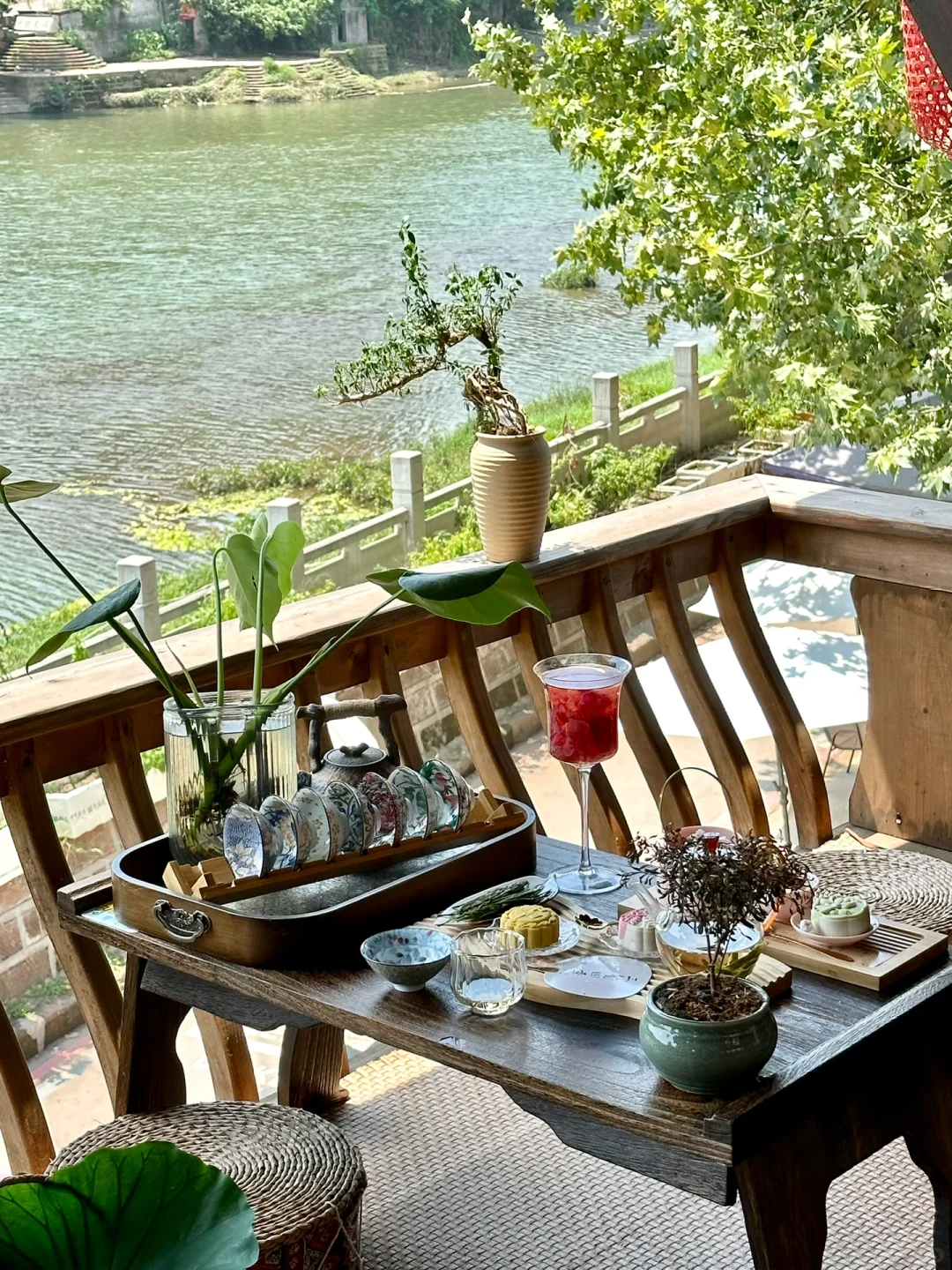
At the site of Mount Emei, the sacred place of Samantabhadra Bodhisattva, visitors can watch monks perform traditional tea ceremonies and feel the Zen essence flowing through the tea arts. The tea ceremony emphasizes graceful movements and focused mindfulness, with every gesture reflecting the harmony between humans and nature. The tea performance not only allows one to taste the tea but also to understand the profound meaning of using tea as a means to cultivate the mind and attain enlightenment.
IV. Beautiful Scenery and Cuisine in Leshan
1. Leshan Giant Buddha and the Confluence of Three Rivers
The Leshan Giant Buddha, the largest stone-carved Buddha in the world, is carved where the Min, Qingshui, and Dadu Rivers converge. From the Buddha’s shoulder, visitors can overlook the merging of the three rivers, their waters rushing together, creating a breathtaking natural scene. The Buddha’s serene expression, paired with the mighty flow of the rivers, symbolizes peace and protection. Tourists can appreciate both the sacred grandeur of the Buddha and the harmonious blend of nature and culture.
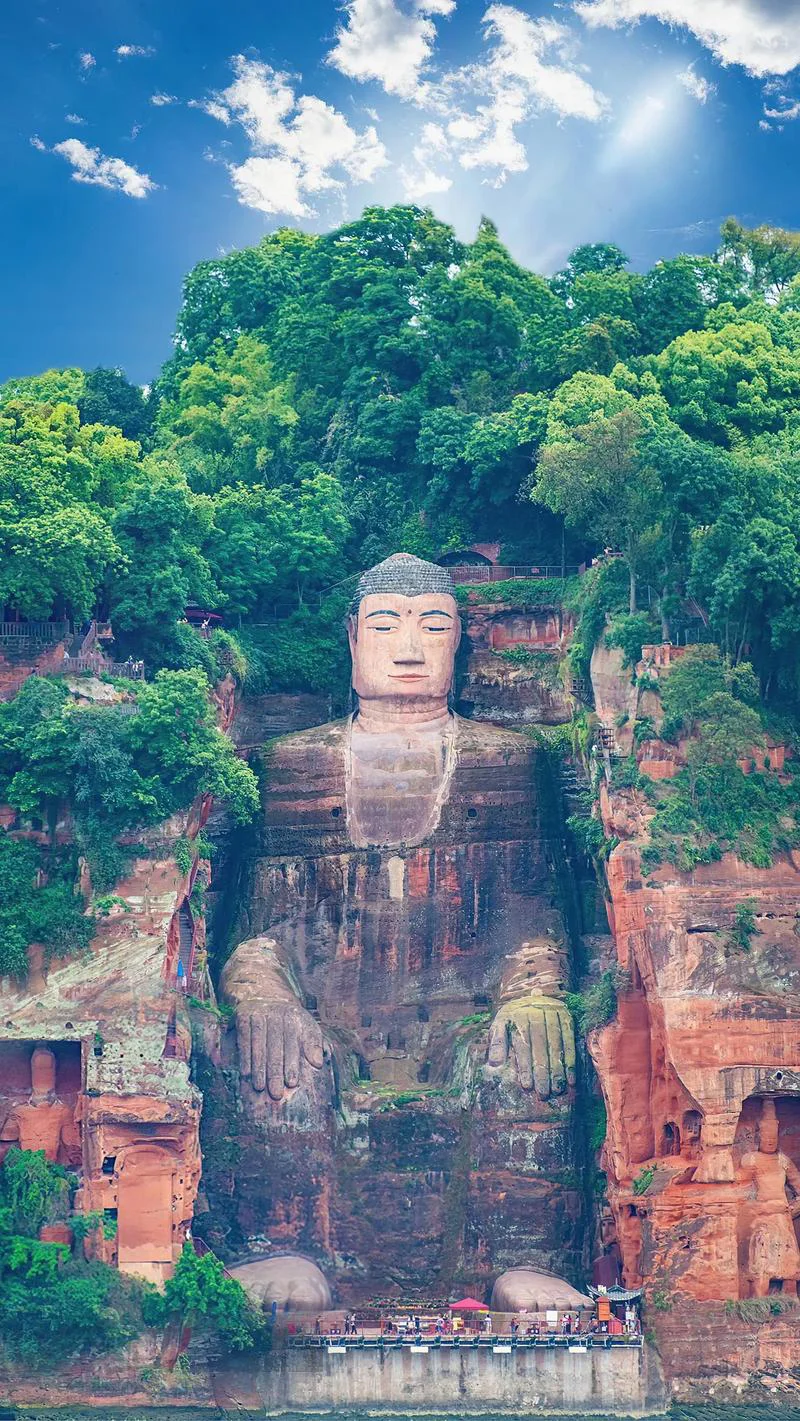
2. Natural Wonders of Mount Emei
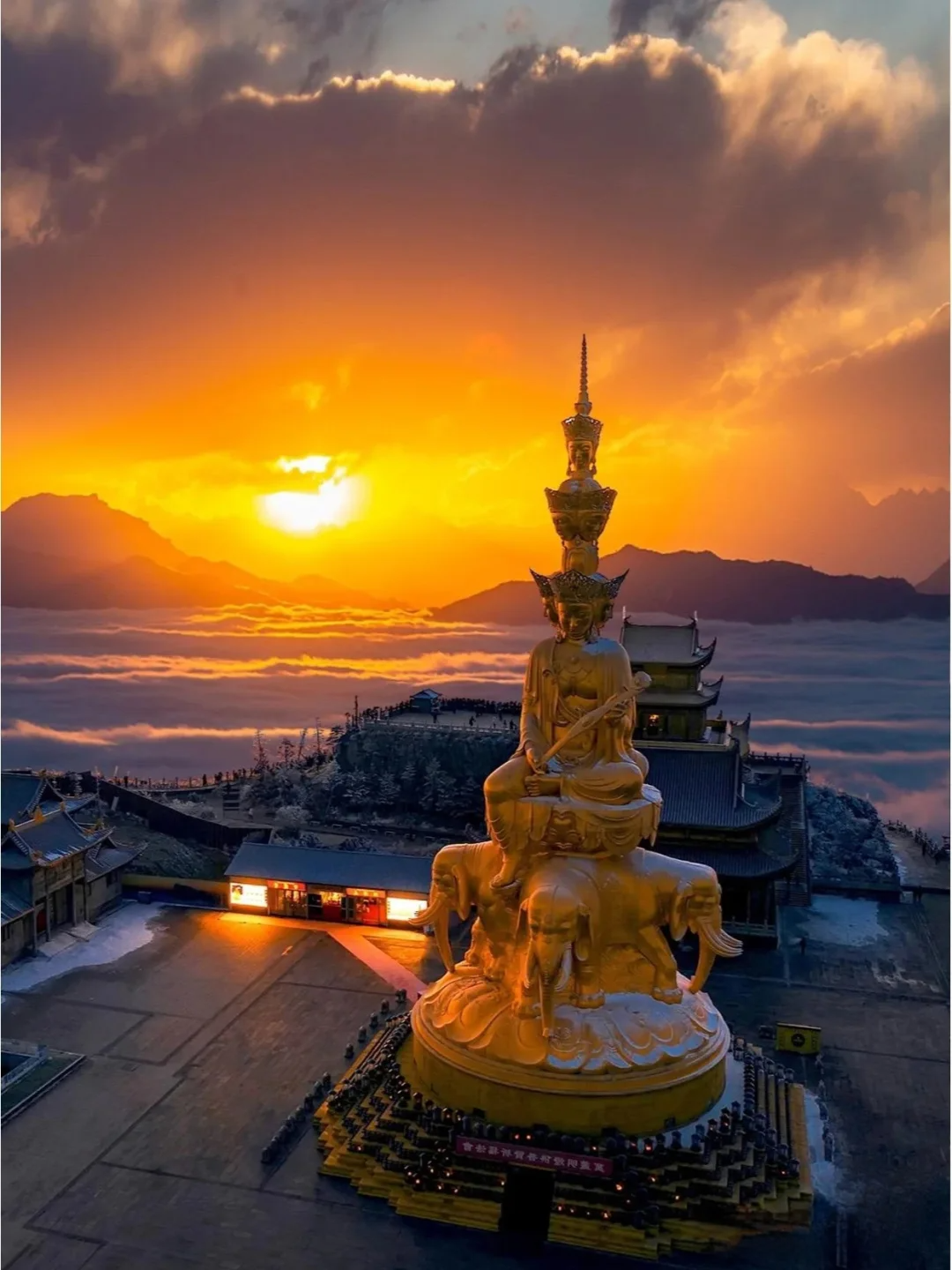
Mount Emei is renowned for its stunning natural landscapes, combining Buddhist sacredness with natural wonders. At the Golden Summit, visitors can witness a magnificent sunrise as the sun slowly rises from the sea of clouds, casting a warm glow over the mountains. The sight of the cloud sea and the rare "Buddha's Light" phenomenon adds to Mount Emei's mystical allure. When this miraculous spectacle occurs, it feels like being in a fairyland, with the "Buddha's Light" believed to be a divine manifestation of the Buddha, making it one of the most cherished experiences for mountaineers.
3. Authentic Sichuan Cuisine
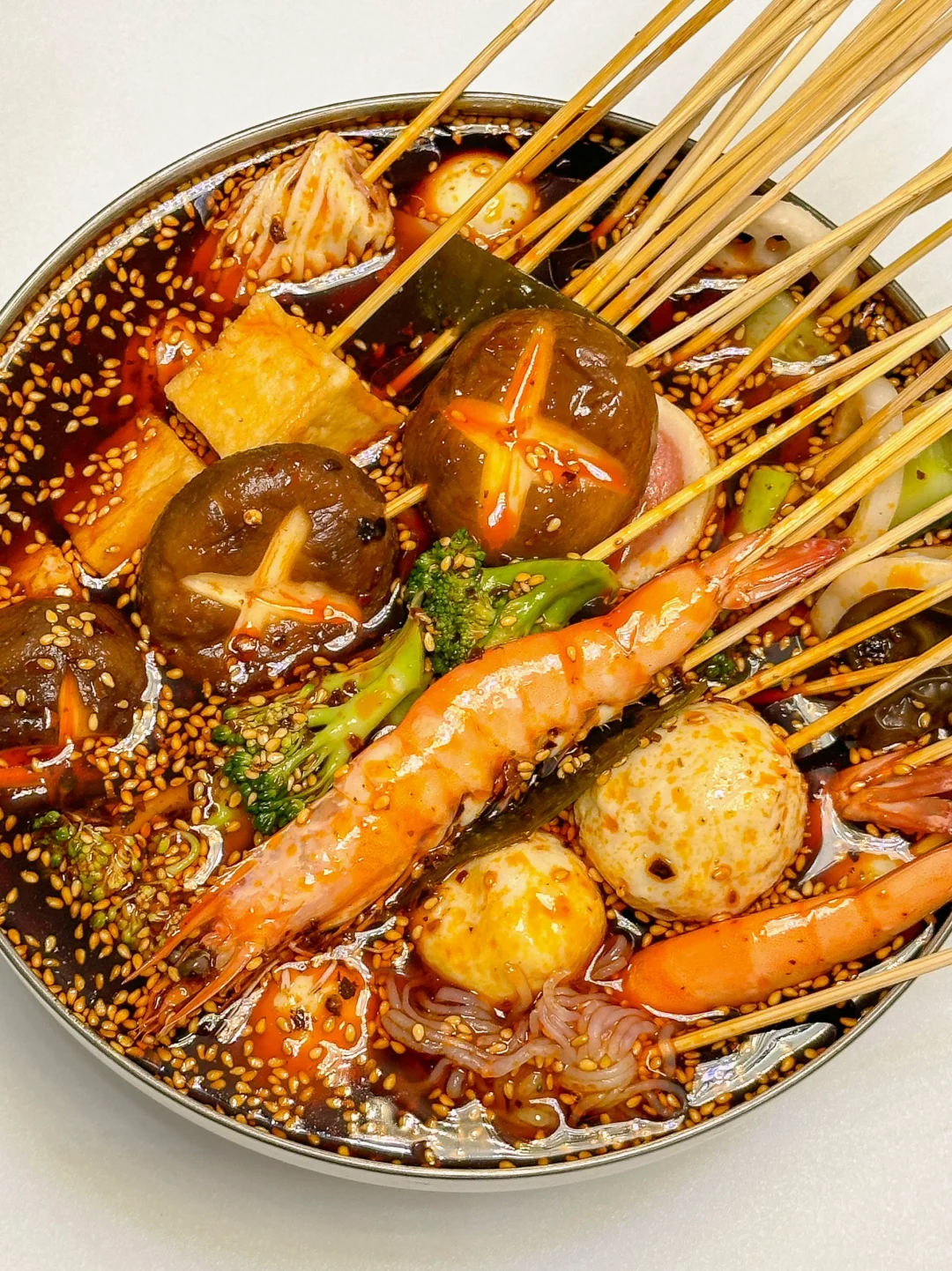
Leshan’s Sichuan cuisine is an unmissable part of the journey. From the tender and smooth tofu pudding to the spicy and fragrant "Qiaojiao Beef" (spicy beef with bone), and the bold flavors of Leshan "Bo Bo Chicken," each dish carries a strong regional character. The local food emphasizes the signature Sichuan flavors of numbness (麻), spiciness (辣), freshness (鲜), and aroma (香). Especially popular is Bo Bo Chicken, known for its rich assortment of ingredients, flavorful broth, and spicy seasoning that tantalize the taste buds and awaken the appetite.
V. Practical Travel Tips
1. Best Time to Visit
-
Spring and Autumn: The weather in Leshan and Mount Emei is most pleasant during these seasons. With moderate temperatures, it's ideal for outdoor activities like hiking and sightseeing.
-
Tea Picking Season: Spring is the peak season for picking Emei Snow Buds tea. The fresh tea buds are at their best, making it the perfect time for tea-tasting experiences.
2. Transportation and Accommodation Recommendations
-
Transportation: Leshan and Mount Emei are close to each other. You can easily reach them via the Leshan Train Station or Emei Mountain High-Speed Railway Station. For more flexibility, consider renting a car for easier access to surrounding attractions.
-
Accommodation: It's recommended to stay in local tea garden guesthouses, where you can experience life close to nature, surrounded by the soothing fragrance of tea, and enjoy a peaceful and comfortable environment.
3. High Altitude Climate and Temple Etiquette Tips
-
Highland Climate: Though Mount Emei isn't extremely high, the weather can be unpredictable. Make sure to bring appropriate clothing, especially as temperatures can drop in the mornings and evenings. Be prepared for cool conditions.
-
Temple Etiquette: When visiting Buddhist temples, it's important to respect local customs. Before entering a temple, remove your hat and shoes, keep quiet, and avoid making noise. When praying, join your hands in a prayer gesture and bow your head as a sign of respect for the Buddhist culture.
VI. Tea Aroma and Zen Spirit: A Journey Through Leshan
In Leshan, the fragrance of tea and the essence of Zen blend together to form a peaceful, harmonious landscape. Emei Snow Buds, as the representative "Buddha tea," carries with it a rich history and deep ties to Zen culture, becoming the soul of this sacred land.
Walking through the tea gardens of Mount Emei, surrounded by mist-cloaked tea trees, visitors can breathe in the refreshing serenity of nature. The aroma of tea invites a tranquil heart, encouraging one to contemplate and savor the essence of life. Leshan is not only a Buddhist sanctuary but also a haven where one can immerse themselves in the fragrance of tea and the spirit of Zen.
Here, the cultures of tea and Buddhism intertwine, offering travelers the opportunity to appreciate both nature and history while nurturing a peaceful mind. It’s a place where one can experience the unique charm of this mystical land.
